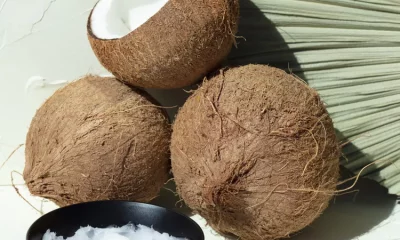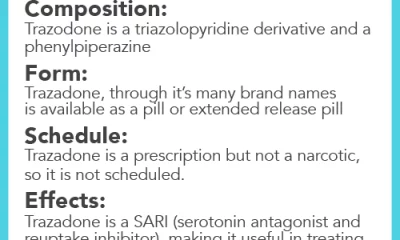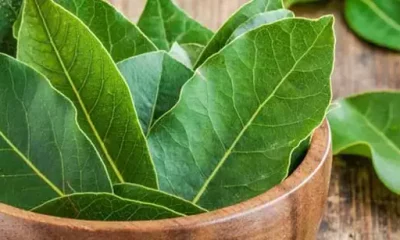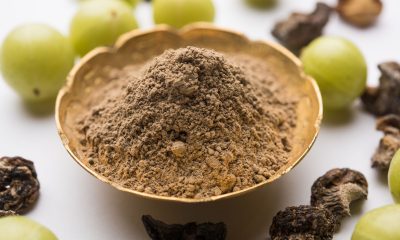Health
Gluten-Free Diet: benefits, recommendations, care and more
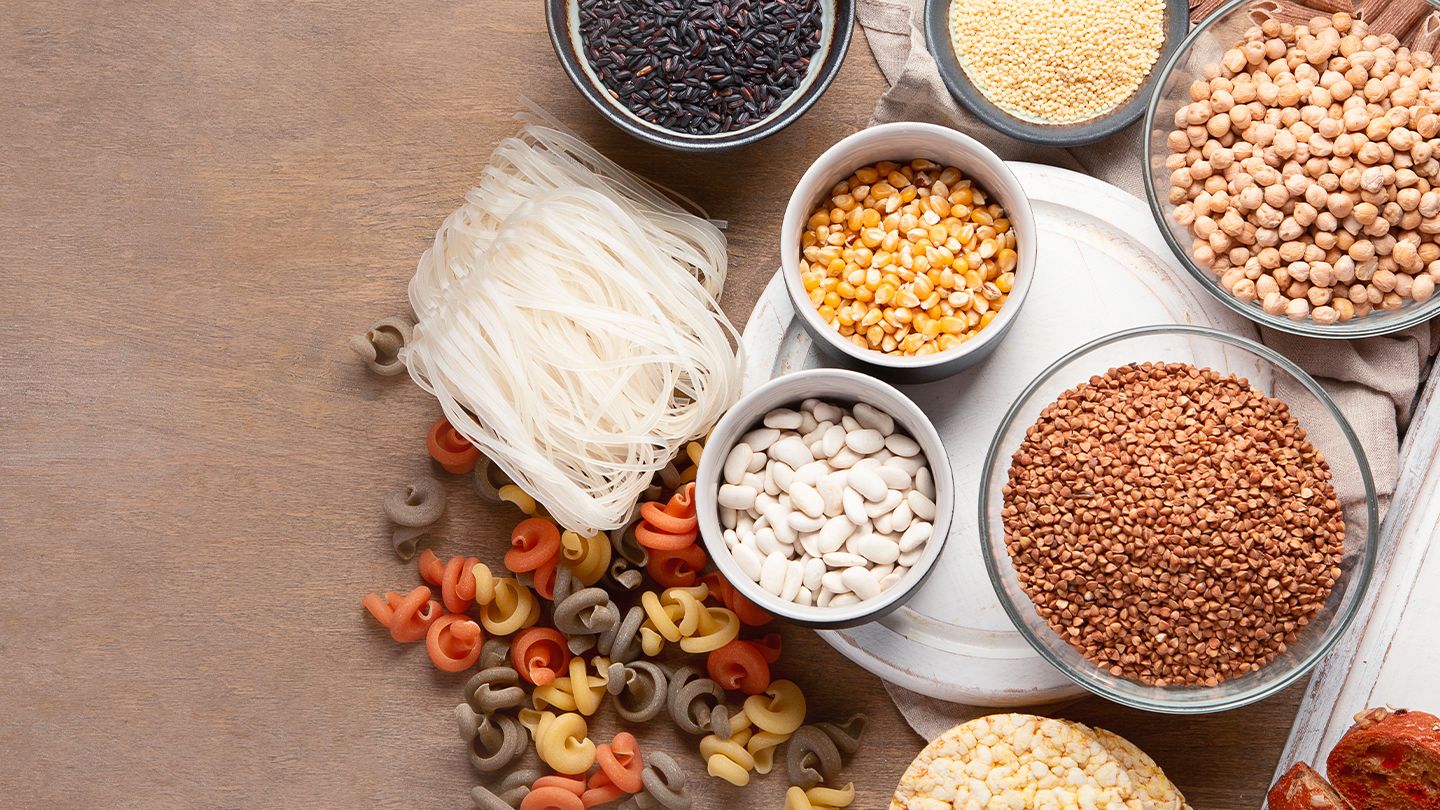
Discover the Gluten-Free Diet: benefits, recommendations, care and more.
Gluten is a protein found in wheat and other grains, and therefore it spreads in bread, pasta, conventional flour, semolina, cakes, etc.
For people who have difficulty digesting it (gluten intolerance or celiac disease), it is essential to adopt a gluten-free diet , as the absorption of gluten causes significant digestive disorders.
But in recent years, the gluten-free diet has started to be adopted by people who do not tolerate gluten, due to the health benefits it provides.
Going gluten-free is an important dietary option for many people and can provide many health benefits, such as reduced inflammation, a smoother digestive process, increased energy, clear skin, hair protection, and regulated hormones, among others.
Gluten free diet
The term gluten-free has become a buzzword in recent years and is even considered a fad diet, but there are many misconceptions that need to be understood before jumping into the world of being gluten-free.
For starters, gluten is a type of protein found in wheat, rye, and barley.
However, due to its usefulness as a binding agent and relatively low cost, you can find gluten in many surprising places, such as pickles, sushi, curry powder, hot dogs, and licorice.
Pick up a random food package at the grocery store, and there’s a chance it might contain gluten.
Obviously, completely eliminating gluten from your diet is therefore a challenge, although, in the last decade, gluten-free options have increased exponentially.
Now, the gluten-free diet has come into the spotlight due to increased awareness and diagnosis of celiac disease across the country (and the world), and the understanding that not all chronic stomach concerns can be quickly label IBS (Irritable Bowel Syndrome).
Celiac disease, by definition, is a genetic autoimmune disorder.
When a person with celiac disease consumes gluten, the body identifies the protein as a foreign or dangerous substance, causing an immune response in the small intestine.
This immune response can seriously damage the small villi in the small intestine that are essential for the digestion of food and the absorption of nutrients.
Additionally, the immune response causes vomiting, nausea, fatigue, bloating, weight loss, ADHD, irritability, irritation and rashes, growth retardation, joint pain, depression, and dozens of other symptoms.
Up to 1 in 100 people are believed to have celiac disease, but the diagnosis is still rare.
About 2.5 million people are believed to have undiagnosed celiac disease in the United States alone.
In addition to celiac disease, there are also wheat allergies (1 in 1,000) and gluten sensitivity as reasons to eliminate or greatly reduce the amount of gluten that is included in your diet.
What further complicates this is that many people show no definite or severe symptoms of the disease, but their small intestine is still damaged, sometimes for years.
It may only manifest itself in small ways, like chronic fatigue or eczema, but it won’t become a more obvious health problem for years or even decades.
However, the damage is still being done.
After eliminating gluten from your diet, symptoms can often clear up in a matter of weeks, but damage to your digestive system can take years to fully heal.
The gluten-free trend
With the massive boom in the gluten-free food industry, initially driven by people needing to eliminate gluten, this eating style has also become “trendy” and “popular,” causing many people to try the diet, believing that it can be a healthier option, like cutting carbs.
However, the nutrients found in wheat, rye, and barley are incredibly important to human health.
Whole grains can help with everything from heart health and diabetes to obesity and cancer.
Gluten itself is related to strengthening immune function and maintaining the balance of the intestinal flora.
Doctors encourage people with gluten sensitivity to “taste” gluten again once a year to see if the sensitivity has decreased, due to the benefits that whole grains have on the body.
In other words, if you are not in the approximately 2% of the population that may suffer from celiac disease, wheat allergy, or gluten sensitivity, eliminating gluten from your diet can have a negative effect on your diet.
Also, if you cut down on your gluten for “modern” reasons, but you actually have celiac disease, it will be much more difficult to diagnose.
The small amount of gluten you consume will continue to damage your intestines over time, even if you aren’t seeing other serious symptoms.
With that said, for those with celiac disease, a wheat allergy, or a gluten sensitivity, there are many health benefits to going on a gluten-free diet!
Health benefits of Gluten-free diet
The health benefits of a gluten-free diet include:
1.- Reduces inflammation
By eliminating gluten, you can prevent the immune response from inflaming the tissues of the small intestine, which can quickly eliminate the more immediate symptoms of celiac disease, such as vomiting or diarrhea.
This inflammation will also mean less cramping and bloating.
2.- Improves digestion
The small intestine is a critical part of human health, as we absorb many critical nutrients in this part of the digestive tract.
Eliminating gluten will protect the villi, ensuring that they can absorb all the nutrients that are available in our diets.
3.- Increase energy
Chronic fatigue is one of the most common complaints from people with gluten intolerance or celiac disease, so cutting out gluten can give you an energy blast.
The gut is a key to overall health, so ensuring you’re in good shape has effects in many other areas.
4.- Skin protection
Rashes, psoriasis, and eczema are seen at higher frequencies in people without a diagnosis of celiac disease.
So if you eliminate gluten under this condition, you can enjoy clear skin that does not itch or discolor when you eat certain foods.
5.- Hair care
One of the long-term effects of gluten attacking the body’s small intestine is nutrient deficiencies.
The body will protect its vital functions, but things like hair growth and health are often secondary, and premature hair loss is common in undiagnosed celiac patients.
Keep your luscious locks in place by cutting out the gluten.
6.- Better immune function
More than 50% of the immune function in our body occurs in the intestine, and when there is chaos in the small intestine, the balance of the flora of bacteria is severely compromised.
This can weaken the overall immune system and lead to chronic illness, so getting rid of gluten is a good idea.
7.- Regulates hormonal levels
Women who suffer from celiac disease or gluten sensitivity often experience menstrual irregularities, often miss periods or are very severe.
By being gluten-free, the immune system can behave properly and prevent imbalance in hormone levels, providing significant relief for many women.
8.- Reduce stress
High levels of anxiety and depression are frequently seen in gluten or wheat intolerant patients.
So if you want to get a good night’s sleep and decrease irritability, cutting out or completely eliminating gluten could be the solution you are looking for.
Final word of warning: If you think you have celiac disease, are gluten sensitive, or have a wheat allergy, talk to your doctor or allergy specialist and get tested, rather than just jumping in the bandwagon and cutting out all the foods in it.
Gluten from your diet. For those people who don’t have all three of these conditions, a gluten-free diet is not only unnecessary but can be dangerous to your health!
Risks of a gluten-free diet
For many, reducing or eliminating it can even lead to weight gain, as most gluten-containing food alternatives are higher in fat.
Also, the gluten-free diet can lead to deficiencies in the essential elements that you will need to get.
The most common deficiencies in the gluten-free diet are:
• B12 vitamin
• folate
• iron
• zinc
• magnesium
• calcium
You can anticipate and find out which foods will help you fill this gap or you can use our vitamin supplements
Of course , some do lose weight, but this is mainly due to the fact that becoming “gluten-free” offers you a smaller variety of foods and therefore reduces your daily caloric intake.
However, whole grains are part of a healthy and balanced diet, and eliminating gluten if you do not have the real need, you lose many nutritional benefits of this type of food (vitamin B, minerals, etc …).
Start a gluten-free diet?
To start, you should focus on maximum consumption of raw / unprocessed foods, such as fruits, vegetables, chicken, fish, and lean meats (all gluten-free).
This is a good way to rule out all sources of gluten in your diet.
Add in that in everyday life, going to the restaurant or going out to eat can quickly get complicated when you are on a gluten-free diet…
So it would be smarter to contact establishments in advance to find out if the menu offers gluten-free options.
Also, do not forget to always inform your server about your sensitivity to gluten, or about your various allergies, as they are used to it and will be happy to help you.
Beware of hidden gluten!
Eating industrial and refined foods is not recommended because gluten can be disguised and not explicitly listed as an ingredient.
However, today most stores have a section dedicated exclusively to gluten-free products
Products that generally contain gluten:
• Bread
• Pasta
• Flour in general
• Matzo
• Pita bread
• Couscous
• The cakes
• Muffins
• Cookies
• Cakes and pastries
• The wheat
• Barley
• Sound
• Semolina ;
• Oatmeal (which contains a protein that is very similar to gluten but not quite the same)
Also note that many oat and field products will be cross-contaminated, so if you decide to buy oats be sure to buy from a certified gluten-free brand).
What are gluten-free foods?
Excluding gluten from your animation means excluding certain foods from your gluten-free diet…
But fortunately, there are still many gluten-free alternatives for foods like cereals and baked goods, as well as many fresh foods that can replace those that contain gluten.
•fruits:
Apples, oranges, grapes, bananas, pears … etc.
•Vegetables:
Potatoes, corn, broccoli, cauliflower, zucchini, cabbage, lettuce, etc.
•Sauces and spices:
Ketchup, Mayonnaise, Salt, and Pepper – Be wary of soy sauce and general salad dressings that may contain gluten!
•Raw, fresh and unprocessed meat.
Chicken, beef, pork, fish, eggs, etc.
Pay attention to hot dogs, cured meats, and any seasoned / prepared meats as they may contain gluten.
•The milk products:
Milk, cheese, yogurt, butter, cottage cheese …
Pay attention to processed cheeses and blue cheese that may contain gluten in this loaf pan. Also, always check the labels on yogurts, making sure there are no added fiber or grains.
•accompaniments:
Rice, potatoes, beans, quinoa … and avoid instant puree!
•Nuts and Spreads:
Peanut butter, almond butter, pistachios, cashews, peanuts… and avoid all roasted, salty and flavored nuts…
Health
Serious side effects of topamax
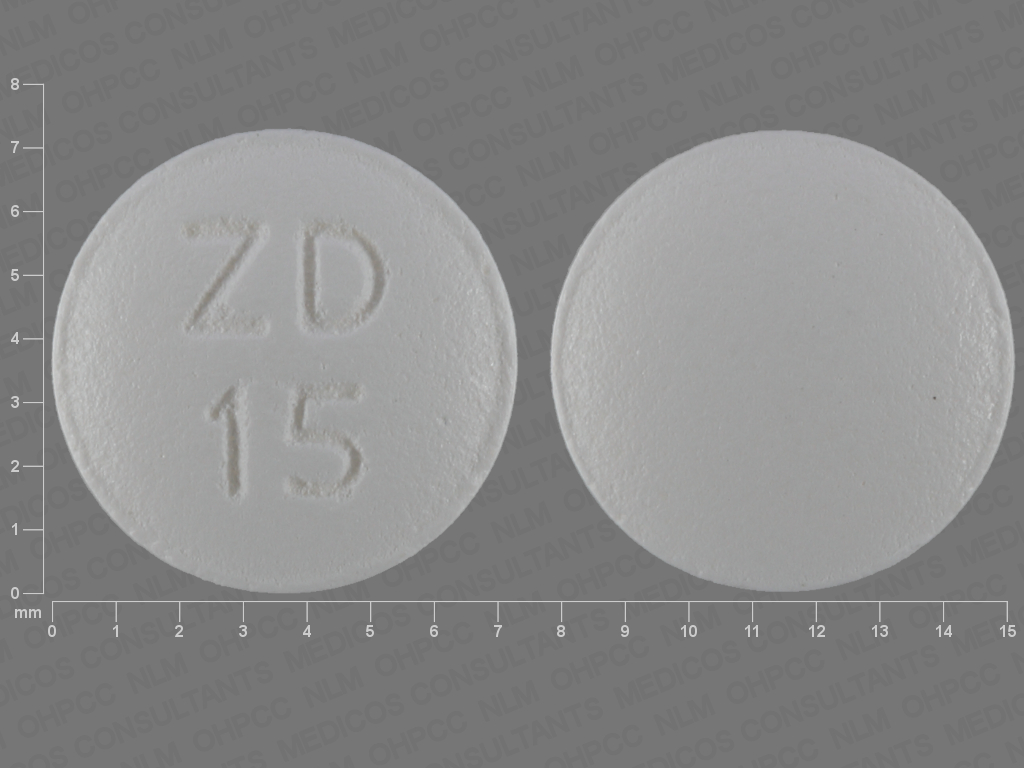
Discover the serious side effects of Topamax
One of the medicines used to treat seizures in adults is Topamax, the active substance of which is topiramate.
The taking of this drug should always be done under medical prescription and with the corresponding prescription, as well as it is essential to follow the instructions regarding the dosage indicated by the specialist.
To learn more about Topamax along with its indications, use, and side effects, keep reading this article.
What is Topamax for
Topamax is a topiramate-based drug used to treat seizures in adults and children older than 2 years.
This anticonvulsant is administered in the event of partial seizures with or without secondary generalization or primary generalized tonic-clonic seizures and for the treatment of seizures associated with Lennox-Gastaut Syndrome.
It should be noted that this drug is also used to prevent migraine, although not as a treatment to alleviate them.
Warnings about Topamax
Taking Topamax should always be prescribed by a doctor and it will be necessary to notify your doctor beforehand in case of:
•glaucoma or other eye problems
•kidney disease, kidney stones, or dialysis
•breathing problems
•mood problems, depression, or suicidal thoughts or attempts
•liver disease
•osteoporosis, osteomalacia
•growth disorders
•be taking lithium
•suffer from diarrhea
•being lactose or sucrose intolerant
•It is also not recommended to take Topamax by pregnant or lactating women, as this drug can cause fetal harm or be excreted through breast milk.
Likewise, you should never drink alcohol while you are being treated with Topamax, as the side effects can be very serious.
Side effects of Topamax
Different side effects derived from taking Topamax have been described, so you should go or notify your doctor quickly if you feel any of the symptoms described below:
•Allergic reactions such as difficulty breathing, hives, swelling of the face, tongue, lips, or throat.
•Sudden changes in mood or behavior
•Anxiety and/or panic attacks
•Difficulty to sleep
•Irritation, agitation, and hyperactivity (mentally or physically)
•Depression or thoughts of killing yourself or hurting yourself
•Numbness or tingling in the extremities
•Headache, tiredness, dizziness, or drowsiness
•Changes in taste
•Nausea, diarrhea, indigestion, stomach pain, loss of appetite or weight
•Quick back and forth movements in your eyes.
Likewise, it should be noted that these are not only the adverse effects that Topamax can cause, so you should consult your doctor in case of any other type of alteration or symptom.
This article is merely informative, we do not have the power to prescribe any medical treatment or make any type of diagnosis.
We invite you to go to a doctor in the case of presenting any type of condition or discomfort.
Health
18 benefits of peanuts during pregnancy
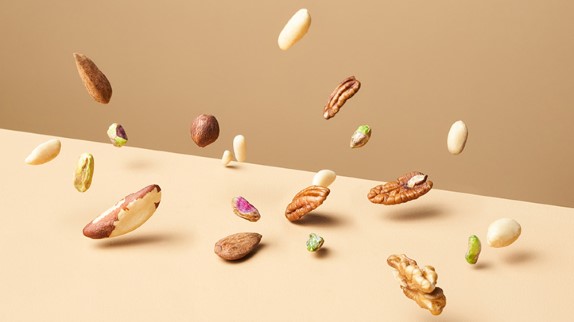
Discover the 18 benefits of peanuts during pregnancy.
Peanuts during pregnancy can be very beneficial for future mothers and their fetuses. Peanuts are not only delicious, but they are also packed with vitamins, minerals, and other natural compounds that are great for pregnancy, which you can’t miss.
You must remember that pregnancy is a wonderful gift that only women can experience.
Being pregnant is like a noble job ordained directly by God for women, something that men could not do on their own. During pregnancy, the fetus magically grows inside the woman’s womb until the baby is born into the world.
To ensure the optimal development of the fetus before it is born, mothers must consume highly nutritious food because it is the only way the fetus can obtain food.
When it comes to the list of foods that mothers should consume during pregnancy, the list will be endless, but you could consider the benefits of peanuts during pregnancy, as peanuts
Peanut Nutritional Values
Peanuts are considered a healthy snack. However, this does not mean that you can consume without knowing the nutrients that peanuts contain.
By knowing the nutrients contained in peanuts, you can measure the number of peanuts needed during pregnancy, since surely the needs of each one are different from those of others.
Serving Size: 100 grams
Energy 567 kcal – 29%.
Carbohydrates 16.13 g – 12%.
Protein 25.8g – 46%.
Total fat 49.24 g – 165%.
Dietary fiber 8.5g – 22%.
Folate 240 µg – 60%.
Niacin 12mg – 75%.
Pantothenic acid 1,767 mg – 35%.
Pyridoxine 0.348 mg – 27%.
Riboflavin 0.135 mg – 10%.
Thiamine 0.64 mg – 53%.
Vitamin E 8.33mg – 55%.
Calcium 92mg – 9%.
Copper 1,144 mg – 127%.
Iron 4.58mg – 57%.
Magnesium 168mg – 42%.
Manganese 1,934 mg – 84%.
Phosphorus 76 mg – 54%.
Selenium 7.2 µg – 13%.
Zinc 3.27mg – 30%.
Sodium 18mg
Potassium 705mg – 15%.
From the table above, surely you have a general idea of the number of peanuts you could consume daily.
The key is to consume it in moderation, but sometimes it is necessary to ensure that the daily intake of a certain nutrient can be met to ensure optimal development of the fetus.
18 Benefits of Peanut During Pregnancy
Below are the benefits of peanuts during pregnancy that will give you reasons why you should add this healthy and delicious snack to your daily diet.
1.- Excellent source of folate
During pregnancy it is highly recommended to consume foods rich in folate and peanuts are one of them.
For every 100 grams of peanuts, approximately 60% of the daily intake of folate could be covered. It is common knowledge that folate is essential for fetal development, especially early in the trimester.
2.- Natural source of vegetable protein
Protein is essential for a mother during pregnancy and 100 grams of peanuts contains enough protein to meet the daily intake.
3.- Prevents birth defects
The birth defect can occur when the development of the fetus is disturbed or when there are insufficient nutrients to support development.
Peanuts are packed with vitamins and minerals that are great for pregnancy like folate to support optimal growth and minerals like iron and calcium to make sure there is enough red blood cell stock.
4.- Promotes optimal brain development
It is great food for the brain. During pregnancy, the fetus receives nourishment from the mother, and the folate consumed by the mother is not only beneficial to the mother, but also the developing brain of the fetus.
If you want to have a healthy and smart baby, eat peanuts during pregnancy.
5.- Source of calories for the mother
Each mother’s calorie needs may be different, but calories are essential for increased energy.
During pregnancy, a mother may suffer from fatigue and get tired easily. To help boost energy, peanuts can help restore it.
6.- Contains healthy fats
Not all fats are bad and peanuts do contain some healthy fats that are great for the mother during pregnancy.
Healthy fats are great for promoting a healthy heart, as mothers are at high risk for high blood pressure during pregnancy.
7.- Reduces the risk of allergic diseases
Recent studies have indicated that mothers who consume peanuts during pregnancy may reduce the risk of allergic diseases.
Not only allergic foods such as peanuts but also other types of allergies such as asthma.
8.- Helps control blood pressure
High blood pressure during pregnancy could be fatal for both the mother and the fetus. That is why it is very important to always keep your blood pressure under control.
To help control blood pressure, adding peanuts to your daily diet is highly recommended because basically, peanuts are great for your heart.
9.- Prevents gestational diabetes
On the table, it was seen that peanuts are quite rich in manganese. This mineral has an important role in regulating blood sugar levels during pregnancy to prevent gestational diabetes. Additionally, manganese also promotes optimal calcium absorption.
10.- Fight depression
During pregnancy, the mother is at risk of stress and depression. Well, some studies have shown that mothers who eat peanuts are much happier than those who don’t. So whenever she feels stressed, she snacks on peanuts.
11.- Decreases the risk of weight gain
Obesity during pregnancy is never good for both mother and baby. That’s why managing your weight is so important peanuts, while they do contain fat and calories, fats are healthy fats and packed with other nutrients that may help you control calories.
12.- Promotes skin health during pregnancy
One of the problems that every mother has to deal with during pregnancy is the skin problem.
Although they are prohibited from using cosmetics due to their chemical content, they could manage their skin problem just by consuming peanuts. Vitamin E and antioxidants will help prevent all skin conditions.
13.- Source of vitamin E
Vitamin E is the reason why a pregnant mother should look good. Vitamin E promotes skin health and makes sure that there is no such skin condition that the mother has to face.
Therefore, they could focus on her pregnancy instead of giving birth to a healthy baby.
14.- Great source of omega 3 fatty acids
If you think that fish is not your friend during pregnancy but you know that you need a great source of omega 3 fatty acids, you could replace fish with peanuts because they contain quite high healthy fats.
15.- Excellent source of vitamin B complex
In the table above you can see the high content of vitamin B found in peanuts per 100 grams. Most of them could satisfy almost half of the daily intake of vitamin B.
16.- Contains powerful antioxidants
Antioxidants are not only a solution against cancer, but during pregnancy, antioxidants could help the mother to maintain her immune system so that she doesn’t get sick easily.
17.- Rich in minerals
Looking for a quick fix to meet your daily mineral intake during pregnancy, peanuts are the answer.
You could see the nutritional table above about the value of minerals found in peanuts. 100 grams of peanuts are capable of satisfying half of the daily intake of minerals that your body needs.
18.- Super healthy sandwich
Well, during pregnancy you need to make sure that you consume enough food to ensure the optimal development of the fetus. Add peanuts to your daily diet because they are the super healthy snack that everyone loves.
Peanut Precautions
Peanuts may be packed with vitamins, minerals, and other natural compounds that are beneficial during pregnancy.
The list of benefits of peanuts during pregnancy mentioned above are scientifically proven facts. However, there are still some precautions about peanuts that you should be aware of as well.
Allergic reaction is one of the common things that can happen when peanuts are consumed. If a mother has ever been diagnosed as allergic to peanuts, she should not eat them.
Some studies also claim, that too many peanuts consumed during pregnancy could increase the risk of allergic reaction to the baby when they were born. Therefore, it is better to consume it in moderate amounts.
Peanut butter can be delicious, but it is recommended to consume it in its real form, as peanut butter has been through some processing and care must be taken with the amount of refined sugar in peanut butter.
Be careful with salty peanut snacks too because they can be delicious to eat during pregnancy, but salt contains sodium that could increase your blood pressure level. High blood pressure during pregnancy can be fatal.
Peanuts are healthy snacks that mothers can add to their daily diet, especially in the early stages of pregnancy when morning sickness is at its worst.
Just by eating peanuts as a snack, you could at least ensure that the baby inside your womb is still getting the nutrients that she needs to develop.
However, you need to keep in mind the precautions mentioned above if you want to reap the full benefits of peanuts during pregnancy and not the other way around.
Health
10 shocking health benefits of Arugula
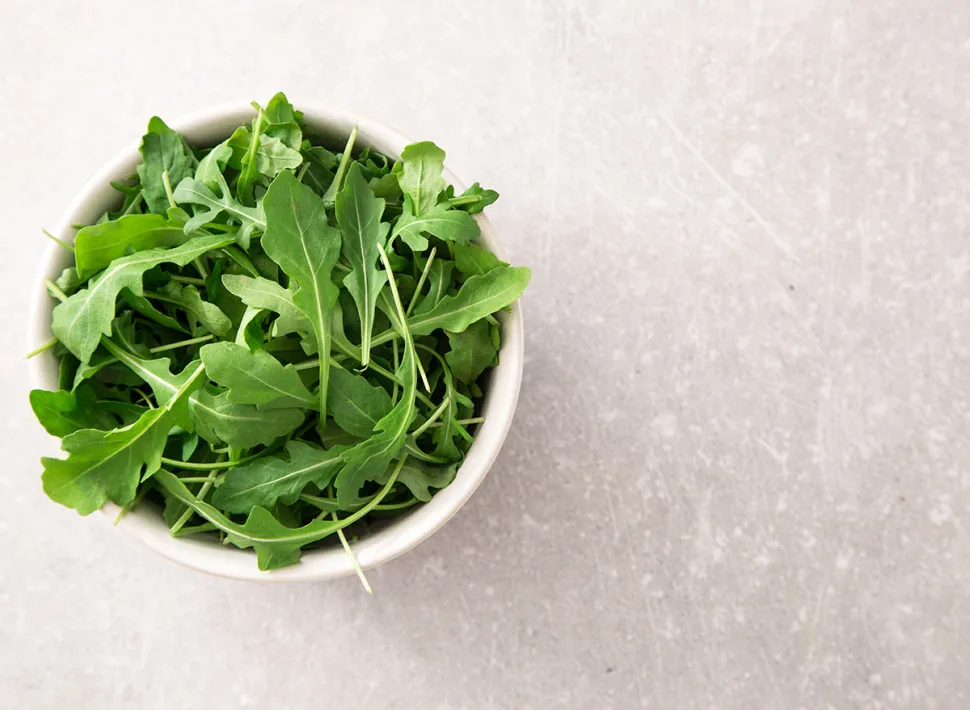
Table of Contents
-

 Benefits4 months ago
Benefits4 months agoThe Benefits of Joining Gym Lumolog – Improve Your Fitness & Health
-

 Food1 year ago
Food1 year ago10 + Benefits of carrot juice and side effects
-

 Health1 year ago
Health1 year ago50 Super Healthy (And Very Often Cheap) Foods
-

 Health1 year ago
Health1 year ago5 Shocking health benefits of kinkeliba and side effects
-

 Health1 year ago
Health1 year ago15 health benefits of soursop leaves tea and side effects
-

 Food1 year ago
Food1 year ago8 shocking benefits of leek juice and side effects
-

 Health1 year ago
Health1 year ago15 Benefits of lipton tea and side effects
-

 Health1 year ago
Health1 year agoBenefits of guava leaves Sensually





